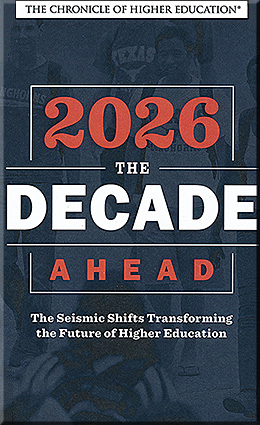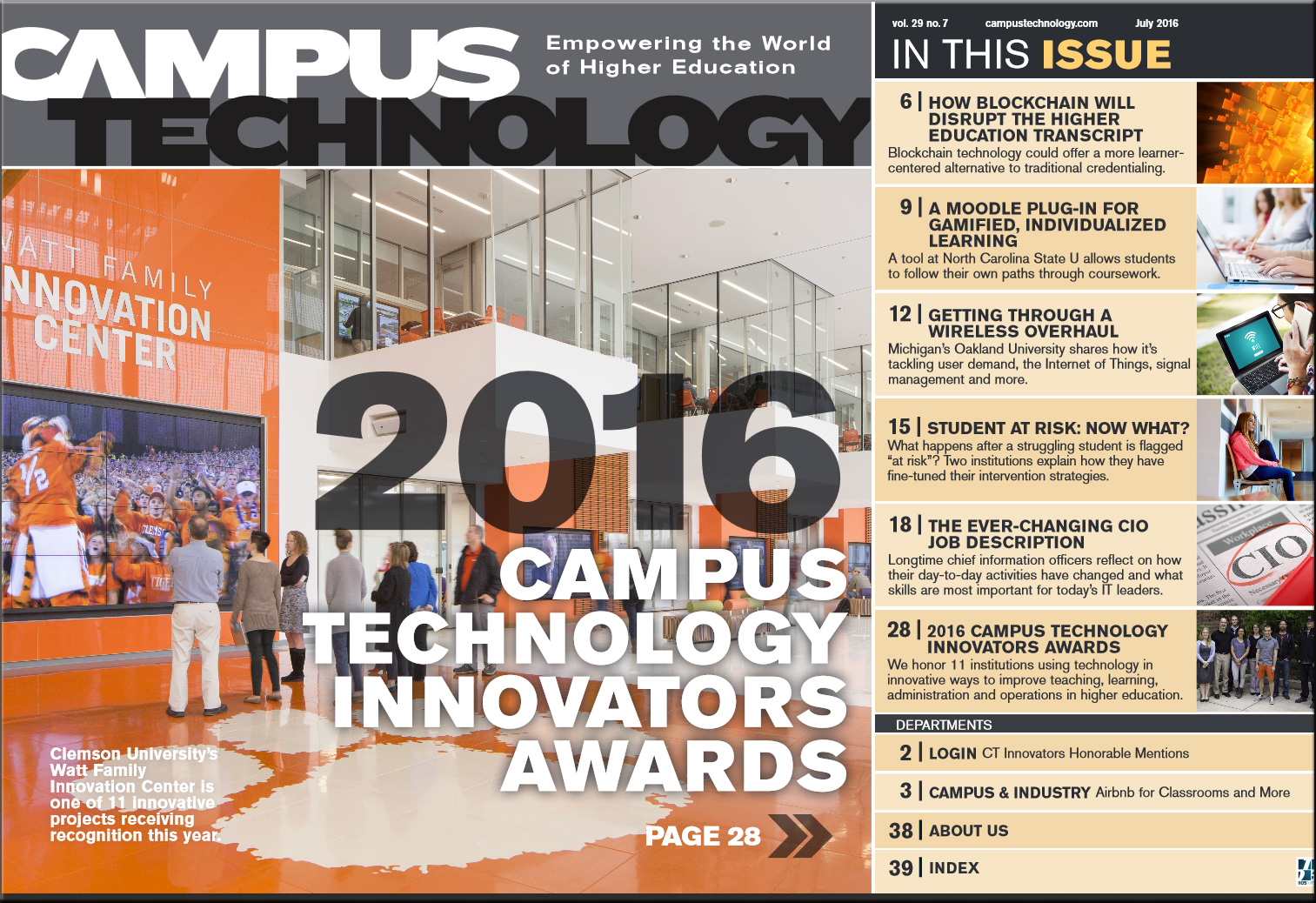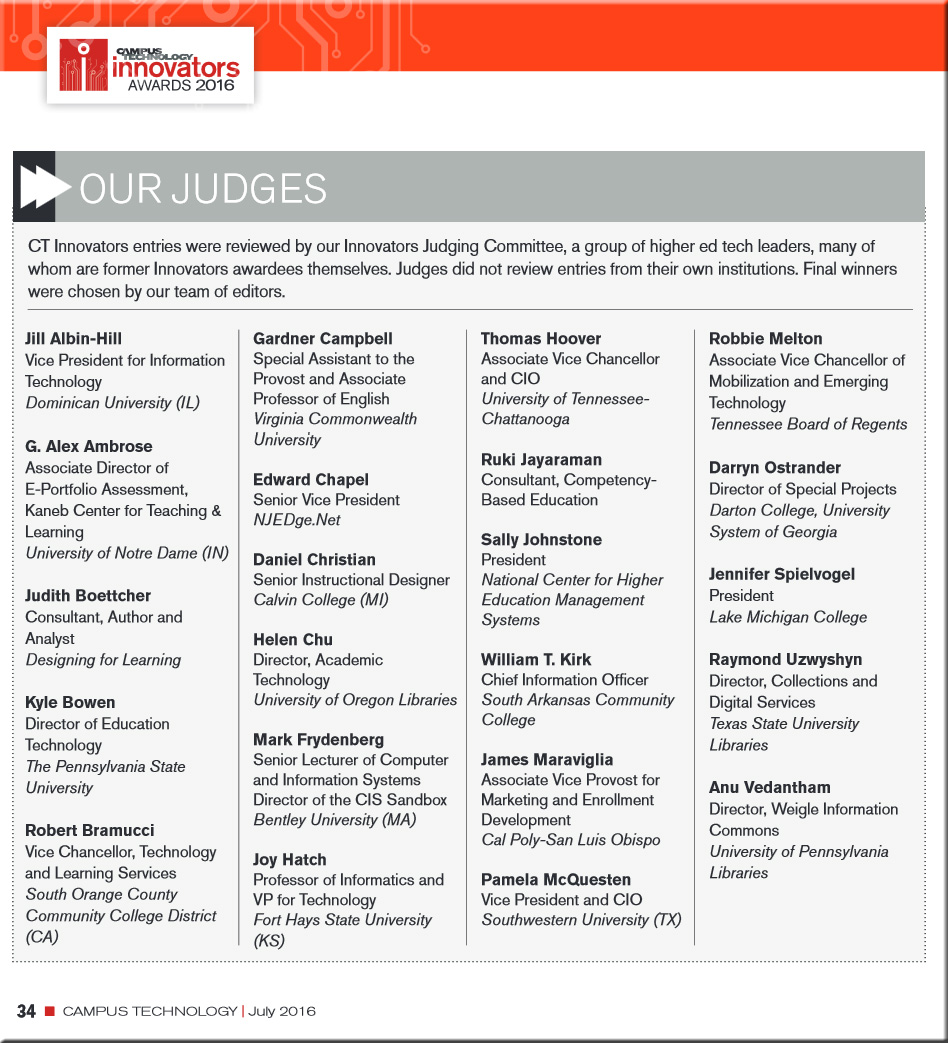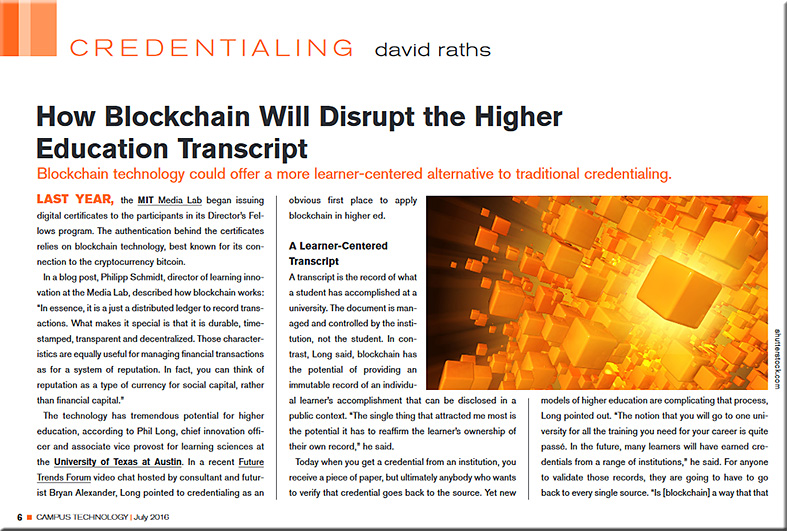
What will higher education look like 5, 10 or 20 years from now? — from goodcall.com by Donna Fuscaldo
Excerpts:
- More Focus on ROI
Students and families will focus more on college return on investment, affordability and student loan debt
Over the next five years, D’Amico sees a shift happening, where potential students will weigh college return on investment, including the outcomes of the past students, job prospects upon graduation and the overall college experience more seriously than whether a school has a state-of-the-art gym. Similar to how people get real-person reviews of restaurants, doctors and other services, the same diligence will be applied to shopping for college.
- Blending the Traditional and the Technological
Internet will play bigger role in learning
…progress will continue to be made in marrying a traditional college education with online classes. The Internet is increasingly becoming a tool for colleges and universities around the country who see the value it can bring.
- Greater Accountability
Schools will be more accountable to students and graduates

2026 The Decade Ahead — from the Chronicle of Higher Education by Jeff Selingo
Description:
What changes are in store for higher education over the next 10 years? Evolutionary shifts in three critical areas will have significant consequences for students and institutions as a whole.
Tomorrow’s students will be significantly more diverse and demand lower tuition costs. Faculty tenure policies will be reexamined as deep-seated Boomers retire. And how colleges are preparing students to succeed in an evolving global economy will be intensely scrutinized. What does this mean for your institution?
Digital Edition: $149.00
Print Edition: $199.00
The Midwest, which produces 100,000 more graduates than the Northeast in any given year, will face an even steeper decline. The biggest producers of high schools graduates in the Midwest — Ohio, Michigan, and Illinois — will all experience historic downturns, with Michigan ending with 86,000 fewer graduates by 2028, a nearly 30 percent drop from 2009. (p.10)
Since 2007, 72 institutions have shut down, nearly all of them with enrollments of less than 1,000. The report outlined six different factors facing higher education institutions in the future, including small size, no online programs, tuition discount rates greater than 35%, and deficit spending. (p.19)













